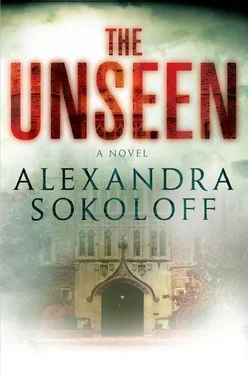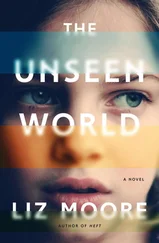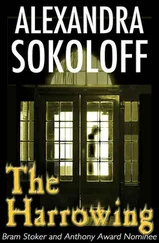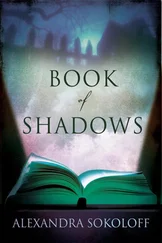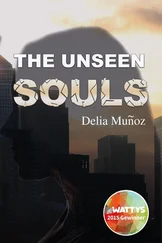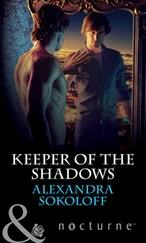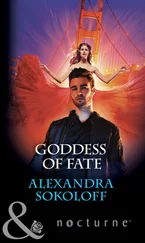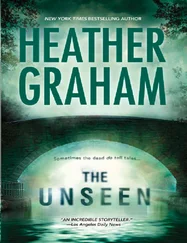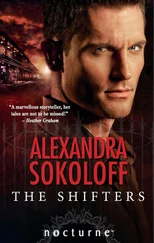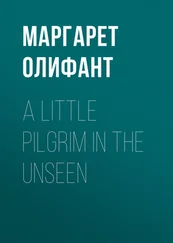And the files were in no discernible order whatsoever.
In fact, it seemed as if whole drawers had been dumped randomly into file boxes—even more—as if the entire lab had been turned on its side and its contents poured into one box after another. Among the letters and memos and files were old cigarette packs, movie stubs from 1965, a petrified candy bar, Sen-Sen breath mints, a tarnished silver teaspoon. It was more like looking at the contents of a recluse’s basement than the official department files of a major university.
After partially working through the chaos of the first box, Laurel checked several more boxes, hoping Box Number 1 was an anomaly. It wasn’t. If anything, Boxes 2 through 7 were even more chaotic than the first.
Laurel had done a semester of fieldwork in a mental hospital for her PhD, cognitive therapy for schizophrenic patients. Reading through the boxes was like that—waves of delusion with occasional startling glimmers of insight. After the first hour, her head was swimming. After the second, she felt like a candidate for an institution herself. She would have to learn to skim if she was ever going to get out of that basement in her lifetime. Yet as soon as she started reading, she was hooked.
She read letters from parents who had experienced an overwhelming sensation or a vividly detailed dream of danger to their children, who had kept them from school, off flights, from getting into cars—and averted certain death by random accident.
She read story after story of ordinary people who had dreamed, or actually seen, a loved one appear to them—only to learn later that that relative or friend had died at the exact moment the apparition came to them.
She read accounts, backed up by testimony from witnesses, from family members who had experienced phantom pain in a limb at the exact moment a relative had been injured.
And as she read, she felt a rightness about it—there was an unmistakable ring of sincerity and truth to the accounts. She believed them.
At the end of the day, Laurel returned the boxes to the front desk of the basement archives and used the call button to page Ward, then stood in a daze beside the desk, every muscle in her body and her mind sore.
The dour librarian appeared in less than a minute, as if she’d been poised and waiting for the call. She looked over Laurel and the boxes without a trace of expression.
Despite herself, Laurel blurted out, “So there’s no order to any of this?”
“Not that anyone’s seen so far,” Ward said dryly. “Had enough?” Somewhere deep inside Laurel, something flared. “I’ll be back tomorrow at nine,” she said defiantly.
“Huh,” Ward said, and began stacking the boxes.
As Laurel drove home through the dark maze of trees, her mind kept straying to her own dream. Finally, she pulled the car over to the side of the road, stopped the engine, and sat back against the seat, letting herself experience the memory…
Step by step down the long, dark hall, bare feet on the cool hardwood floor… the sick-sweet scent of jasmine and the sound of moans…
And the shattering…
Laurel gasped and pulled herself out of the memory. She was breathing hard… and she could feel the beginning of welts rising on her chest.
She clenched her hands around the steering wheel, and closed her eyes, trying to calm herself.
As much as she had tried to dissect the dream in logical terms: she was subconsciously aware of Matt’s infidelity; she’d gotten real life hints that Tracey was his lover, there had been clues, there had been signs all along…
None of those hints and clues explained the time on the clock, the siren and the dog, and the smell of jasmine—all details she dreamed, exactly as they happened, before they happened.
And the mirror… the mirror…
Without realizing it, she spoke aloud into the dark. “It wasn’t broken before. It shattered… while I was standing there.”
For the first time she allowed herself to consider the possibility that there may have been more to the dream.
Much, much more.
If indeed we have this ability, then why are we not devoting every waking hour to the exploration of that possibility?
—Dr. Alaistair Leish
In the early morning before class, Laurel sat in the darkness of a basement library carrel, the light from a black-and-white sixteen-millimeter film flickering on her face. The film was of an interview: On the small screen in front of her a man was speaking from a leather armchair in front of a wall lined with books, in what looked like a private study or library. The man was tall, lean, blond, and gorgeous, dressed in an elegantly tailored suit with a narrow tie. His voice was as rich and refined as the voices of the best actors and news broadcasters of the time.
He leaned forward in this chair with an intensity that sent chills through Laurel’s entire body; he seemed to be speaking directly to her, in that velvety British accent.
“Perhaps that which we call ‘reality’ is no more than an agreement, a social contract that the less imaginative among us have decided upon, for the sake of convenience. But what if life is—in reality—more like the dreaming state? If time is a spiral, then is it possible to remember the future as well as the past? Might that begin to explain ESP?”
The black-and-white film had the grainy quality of a newsreel and seemed like a jolt from history. The only marking on the film can was ALAISTAIR LEISH, 1965. Laurel had found the can of film in one of the file boxes and was now watching it on one of the library’s machines, completely riveted to the screen.
An off-camera interviewer was asking: “Dr. Leish, what are the implications if ESP really exists?”
Leish looked into the camera, straight at Laurel, into her very soul. “It means everything we know about reality is in question. It means that we are on the threshold of a whole new world.”
His voice was so quietly confident, so clearly in awe of the possibilities, that Laurel felt a thrill running up her spine, ending in a tingling behind her ears. She was barely aware of her body in the chair.
The film cut to overhead shots of the Duke campus in the sixties. Laurel was enchanted by the agelessness of it, the time-machine feeling of seeing the same buildings she walked by and worked in every day, in another era. The camera lingered on a distinctive Greco-Roman building with a copper dome and four tall white pillars on the portico. Laurel felt another shiver at a shot of a wooden door, with a window of frosted glass and the lettering: PARAPSYCHOLOGY LAB.
Then she leaned on her elbows and watched, mesmerized by the footage of Zener-card tests: the volunteers in their 1960s dresses and suits sitting at opposite sides of a small square table with a dark-wood screen partition in the center of the table that hid the cards on either side from view of the researcher and the test subject.
The next shot was of a machine consisting of a stand and a long lever that rotated a two-foot-long rectangular cage with rolling dice inside it.
Both shots were so familiar Laurel felt she must have seen some similar film before, if not the same reel. But she had no idea where that would have been.
The film moved back to a voice-over of Leish telling his own story, while Laurel was treated to a series of photos of the younger Leish, breathtakingly, arrogantly handsome, with thick blond hair and light piercing eyes.
“My first poltergeist investigation took place at a farm in Sussex in 1951. The family had reported knocking and scratching in the walls, bedclothes being pulled off the children as they were sleeping, the radio going on and off at odd hours.” Leish’s voice dropped into a storytelling hush and Laurel leaned forward, entranced. “I was convinced that the twelve-year-old son of the farmer had been faking all the ‘poltergeist’ effects: pulling out drawers when no one was watching, spilling sugar and salt on the kitchen counters and floor.” Leish paused. “But one night, in the middle of the night, long after this boy had gone to bed, I was sleeping on the couch in the living room, and I suddenly awoke to intense cold. A fire was blazing in the hearth, but I could see my own breath in the air. Then with my own eyes I saw coins begin to fall from the ceiling. They appeared just below the ceiling and fell to the floor without a sound, like rain.”
Читать дальше
